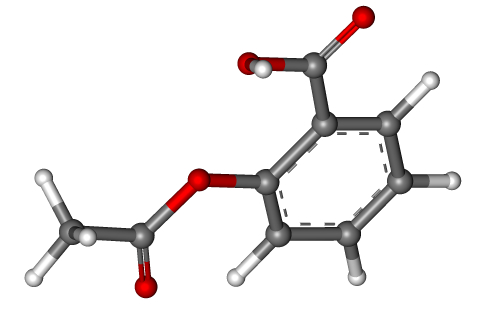New Draft Guidelines
The U.S. Preventive Services Task Force (USPSTF) recently released draft recommendations supporting the use of aspirin to help prevent disease. The list of diseases that cancer is shown by strong data to prevent continues to grow. The USPSTF now includes prevention of both cardiovascular disease and colorectal cancer. The inclusion of colorectal cancer as part of these guidelines is a first.
The guidelines are still in draft form and will be released in a final version in 2016. The time has come to recommend daily low-dose aspirin to nearly every patient.

Preponderance of Evidence
As of the USPSTF draft recommendations, an enormous number of studies and professional guidelines have accumulated around the recommendation of daily aspirin for all patients. Among them:
- A recent meta-analysis published in the Lancet found that overall, the risk of death from cancer was reduced by 21% in patients who took daily aspirin compared to those who did not.
- An earlier study published in the Lancet found that cardiovascular events were reduced among patients who took daily aspirin.
- The American Cancer Society (ACS) appears to endorse the USPSTF guidelines.
- The ACS website frequently discusses the use of aspirin to prevent cancer.
- The American Diabetes Association has recommended the use of aspirin by patients with type 2 diabetes for prevention of cardiovascular complications.
- “The effectiveness of regular aspirin therapy in reducing risk (secondary prevention) for myocardial infarction, ischemic stroke, and fatal coronary events among persons with preexisting atherosclerotic cardiovascular disease (ASCVD) is well established and recommended in current guidelines,” reported a recent article in Morbidity and Mortality Weekly Report.
- The European Heart Journal has recommended daily aspirin for the prevention of cardiovascular disease.
- The Journal of Thrombosis and Thrombolysis has come down on the side of routine use of aspirin, and Surgeon advocates for its use as a primary presurgical anticoagulant.
“There is now definitive evidence that long-term daily aspirin use, even at low doses, will lower risk of developing colorectal cancer, probably by approximately 40%,” Eric J. Jacobs, PhD, said in an interview with Cancer Prevention Research News, a publication of the American Cancer Society (ACS). Dr. Jacobs is a researcher with the ACS.
“Besides colorectal cancer, there is good evidence that aspirin use lowers the risk of developing cancer of the esophagus, and fairly good evidence that aspirin use also lowers the risk of developing stomach cancer. These two cancers are not among the most common in the U.S., but they are of some importance because they tend to be very hard to treat,” Dr. Jacobs explained.

